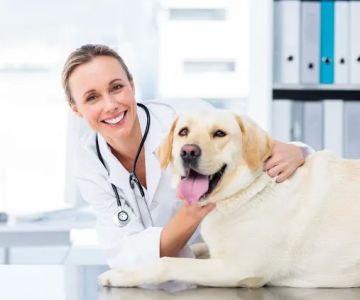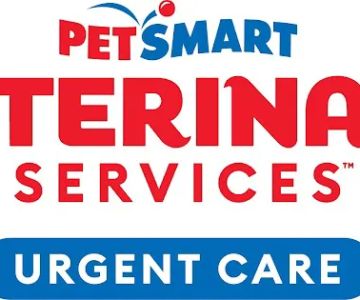The Importance of Balanced Nutrition for Pets
As a pet owner, one of the most important responsibilities I have is ensuring that my furry friends receive the right nutrition. Just like us, pets need a well-balanced diet to maintain their health, energy levels, and overall well-being. Over the years, I've learned that providing my pets with proper nutrition isn't just about feeding them; it's about choosing the right foods and understanding the unique dietary needs of each animal. Here’s a closer look at why balanced nutrition is so crucial for our pets.
1. What Does Balanced Nutrition Mean for Pets?
When we talk about balanced nutrition, we’re referring to a diet that includes all the essential nutrients—proteins, fats, carbohydrates, vitamins, and minerals—in the correct proportions. Every pet, whether a dog, cat, or even a rabbit, has specific nutritional needs depending on their species, breed, age, and activity level. A well-balanced diet supports healthy growth, a strong immune system, healthy skin, a shiny coat, and proper digestion. I’ve learned through personal experience that not all pet food is created equal, and some are better suited for certain breeds or health conditions than others.
2. The Role of Protein in Your Pet’s Diet
Protein is essential for building and repairing tissues, producing enzymes and hormones, and maintaining a strong immune system. For my dog, Max, I found that a high-protein diet improved his muscle tone and overall vitality. Protein sources in pet food often include chicken, beef, lamb, and fish. It’s important to choose high-quality protein sources to ensure that your pet is getting the right amino acids. If you’re feeding your pet a commercial pet food, be sure to check the ingredient list for real meat, not just meat by-products. I remember when I switched Max to a food with better-quality protein, his coat became shinier, and his energy levels increased.
3. The Importance of Healthy Fats for Pets
Healthy fats are another vital component of a balanced diet. They provide a source of energy and help absorb certain vitamins. Omega-3 and Omega-6 fatty acids, in particular, are essential for your pet’s skin and coat health. My cat, Bella, has a beautiful, shiny coat, and I attribute this to the Omega-3 fatty acids found in her food. These healthy fats also support brain function and help with joint health, which is crucial for aging pets. Always check the ingredients for sources of healthy fats like fish oil, flaxseed, or chicken fat. I’ve noticed that Bella is more agile, and her skin doesn’t get dry or flaky anymore since adding these fats to her diet.
4. Carbohydrates: Are They Necessary?
Carbohydrates often get a bad reputation in the pet food world, but they are a crucial source of energy. While pets don’t need carbs in the same way humans do, they can still benefit from moderate amounts of high-quality carbs. Whole grains like brown rice and oats, or vegetables like sweet potatoes, provide pets with a steady source of energy without the crash that comes from refined sugars. I’ve found that my pets are much more active throughout the day when their diet includes healthy carbs. For Max, the addition of sweet potatoes in his food has helped maintain his weight and energy levels without overloading him with unnecessary calories.
5. Vitamins and Minerals: Small but Mighty
Vitamins and minerals are the building blocks of a healthy body. They are required in small amounts but are essential for various bodily functions, from bone health to immune support. In my experience, a diet rich in vitamins and minerals helps prevent common health issues in pets. For example, vitamin A and beta-carotene are important for eye health, while calcium and phosphorus are essential for strong bones. My vet recommended a food that included a blend of essential vitamins and minerals for Max, especially as he started aging. It’s been reassuring to see how these nutrients have contributed to his continued health and vitality.
6. The Impact of Proper Nutrition on Pet Behavior
Proper nutrition doesn’t just affect your pet’s physical health—it can also impact their behavior. I’ve noticed that when Max eats a balanced diet, he’s calmer, more focused, and less prone to anxiety. On the other hand, when his diet is lacking or when he eats too many treats, he tends to become more hyperactive or irritable. Balanced nutrition helps stabilize blood sugar levels, which can reduce mood swings and improve behavior. I’ve spoken to other pet owners who have experienced similar changes in their pets once they switched to a better-balanced diet. Nutrition is as important for mental health as it is for physical health!
7. Special Dietary Needs for Pets
Some pets may have special dietary needs due to age, health conditions, or breed-specific requirements. For example, senior pets may need food that supports joint health or has fewer calories to prevent obesity. When Bella became a senior cat, her food was adjusted to include joint-supporting ingredients like glucosamine. I’ve also learned that certain breeds are more prone to specific health conditions, such as allergies or kidney issues, which require specialized nutrition. If your pet has any specific health concerns, I recommend discussing with your vet to find a diet that meets their unique needs.
8. Homemade Diets vs. Commercial Pet Food
As a pet owner, I’ve often debated whether homemade diets are better than commercial pet food. There are certainly benefits to cooking for your pet, as you can control the ingredients and ensure that only the highest quality foods are included. However, it’s important to consult with a veterinarian or pet nutritionist before making this transition. Some homemade diets lack the essential vitamins and minerals pets need, and it can be time-consuming to ensure that all their nutritional needs are met. After trying both, I found that high-quality commercial pet food was easier and more reliable for providing my pets with balanced nutrition, but homemade food can be a good option with proper guidance.
9. Feeding Guidelines: How Much Is Enough?
Portion control is crucial when it comes to feeding your pet. Overfeeding or underfeeding can lead to health problems, such as obesity or malnutrition. When I first adopted Max, I was unsure of how much to feed him. Over time, I learned that the amount of food your pet needs depends on their size, breed, age, and activity level. Most commercial pet foods include feeding guidelines on the packaging, but I also recommend working with your vet to determine the ideal portion size for your pet. This ensures that your pet gets the right amount of nutrition without excess calories or deficiencies.
10. The Connection Between Nutrition and Longevity
Balanced nutrition doesn’t just promote a healthier life; it can also lead to a longer life. Pets that are fed a nutritious diet are more likely to live longer, healthier lives. As Max grows older, I’m grateful for the proper nutrition that has helped him stay active and healthy well into his senior years. Feeding pets high-quality food that supports their overall health can prevent many chronic diseases and improve their quality of life. It’s reassuring to know that by feeding my pets well, I’m giving them the best chance for a long, happy life.











